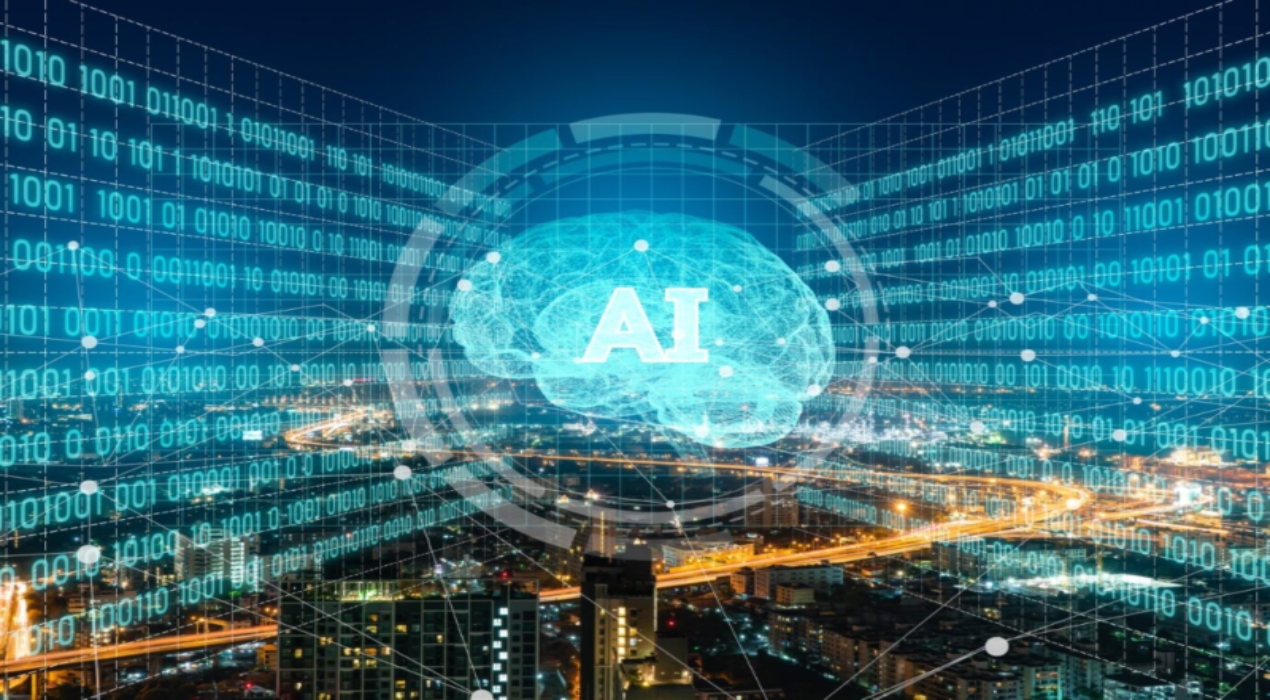
When we think about a future city, we imagine flying cars and robots selling coffee when we head out to work, like in a Sci-Fi movie. But upcoming technology, especially Artificial Intelligence has real potential to deeply and fundamentally impact the shape of our cities. AI, at its core, is powered by algorithms.
From a simplified process perspective, data is pumped through these algorithms, or models, to find patterns in data. With enough data and improved accuracy in this pattern recognition, companies/products can generate actionable insights that help a user.
In simple words, AI can be understood as developing machines and enabling them to perform tasks that traditionally require human intelligence like speech recognition, decision making, language translations, etc.
Today, we are used to AI when it comes to face and voice recognition on our smart devices and secretly get excited at the prospect of having self-driving cars transporting us through long and tedious commutes.

This same excitement around AI’s potential to transform urban spaces led us, here at OpenGov, to Ravi Bedi, Technology Innovation Principal Director at Accenture and an SME for Intelligent Automation and AI. He is also the GTM lead for Accenture’s Data Business group in ASEAN and Automation Engineering Lead for APAC.
Ravi first recognises and highlights two fundamental occurrences that one, lots of data is now digital and two, reduction in the cost of processing data (especially with cloud providers). These changes have positioned Automation and AI to play a key role in today’s world.
Moreover, Ravi believes AI technology can drastically improve the planning and functioning in modern cities. He understands Intelligent Automation solutions as a constellation of various technologies, when combined together, represent the functionality of a digital co-worker, encompassing both rules-based activities as well as judgment-based activity.
He believes it is important to focus on creating Intelligent and connected platforms that look at the constellation of various technologies such as blockchain, AR/VR, Robotic Process Automation (RPA), natural language processing (NLP) and computer vision.
Urban Planning and AI is already a hot topic of discussion in the tech world, especially after the release of the study, Artificial Intelligence and Life in 2030, which outlines the dramatic impact Artificial Intelligence (AI) is having and will continue to have for our cities and the way we live and work in them over the next couple of decades.
Ravi too delved deeper in it to explain how Data Analytics solutions, machine learning, and eventually the 3rd tier of AI solutions using deep learning, will be able to create a digital crystal ball, allowing us to peer into the future, and predict outcomes, with a high degree of accuracy.
He explained that there are three tiers of applications for AI-backed solutions that can be used in Urban Planning:
The first is, Data Analytics, which takes raw data either in real-time or historical, and provides current insights, for example, intelligent traffic lights. Intelligent traffic lights can use data analytics to coordinate and track time changes in traffic lights, based on the current flow of traffic, making daily commutes smoother.
The second tier of AI applications uses Machine learning. Ravi explained, “ML is a more advanced form of AI. When machine learning is applied to data sets, the algorithms look for patterns in the data, in order to make near term predictions and deeper insights into the data.
A good example within urban planning could be road maintenance. Instead of road crews looking round for potholes to repair, or to wait for citizens to complain about potholes, urban planners can use computer vision techniques to collect and annotate data sets, so that machine learning models can be applied to predict which roads will have more “wear and tear”, resulting in potholes. These maintenance crews can then focus their energy on repairing potholes, instead of looking for them.”
The third tier of AI solutions uses Deep Learning: an advanced version of machine learning. Ravi explained, “Deep Learning AI solutions use highly advanced and complex algorithms. Deep learning is used to crunch very large data sets over a fairly long period of time, to be able to give planners, predictive insights, into the data”.
He provided the following example, of how Urban Planners may use Deep Learning techniques to help design the cities of the future. “Assume a city has won the bid to host the next Olympic games. A multi-year project to build all the sporting facilities is underway. Using deep learning models, urban planners will be able to look into the future, and understand how the nature of traffic will change, how to best manage new traffic flows, how best to design the roads leading up to sporting venues and leading away from sporting venues, how best to design new public transportation etc.”.
Further, on the wider debate between the Tech optimists and pessimists on how much we should let AI take control, Ravi is an optimist who believes AI should be democratized and humanized. Today, most major corporations are incorporating AI as an effective tool to boost their businesses and one such example is Netflix that suggests users shows to watch content based on the pattern of previous views.
Hence, as businesses increasingly adopt the AI-first and Data-first approach in their operations, AI is bound to be a prominent trend across various fields in 2020. Enumerating some of them would include: AI improving healthcare accuracy and cost, empowering cybersecurity, enabling more data synthesis methods, driving efficiency in manufacturing, etc.
Despite these current and prospective adaptations and use cases, AI is still in its infancy stage. Currently, we are at the “Narrow AI” solutions stage that translates to applying algorithms to solve very narrow problems of work. But, even within these narrow applications, when AI is applied, it can work at a scale, that far outstrips what a human can and could do.
Hence, while Automation is inevitable, the focus should be on humanizing it. For instance, AI still needs good data to function well. If the data at hand is biased and not curated carefully, the algorithms will learn wrong patterns. In essence, it is equally important that we (tech users) and the governing authorities understand AI’s potential but also be mindful of its limitations to ensure holistic wellbeing in the long run.




















